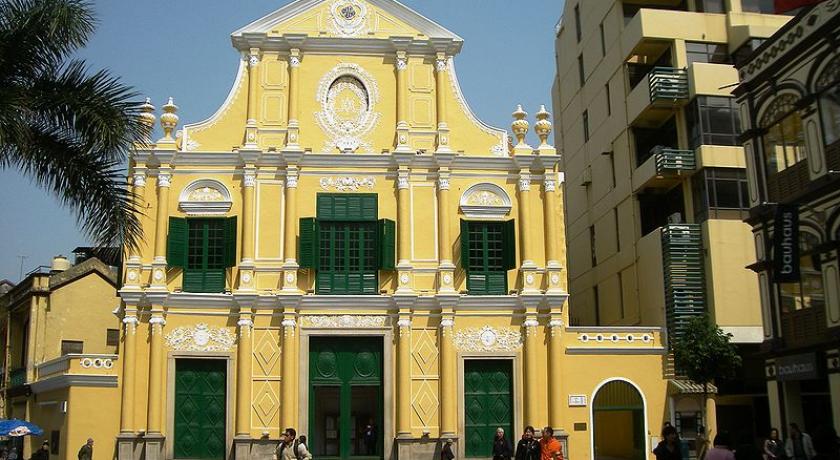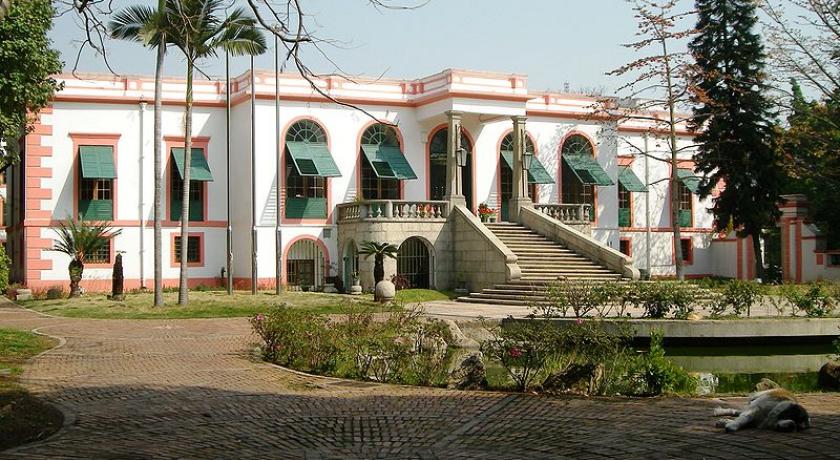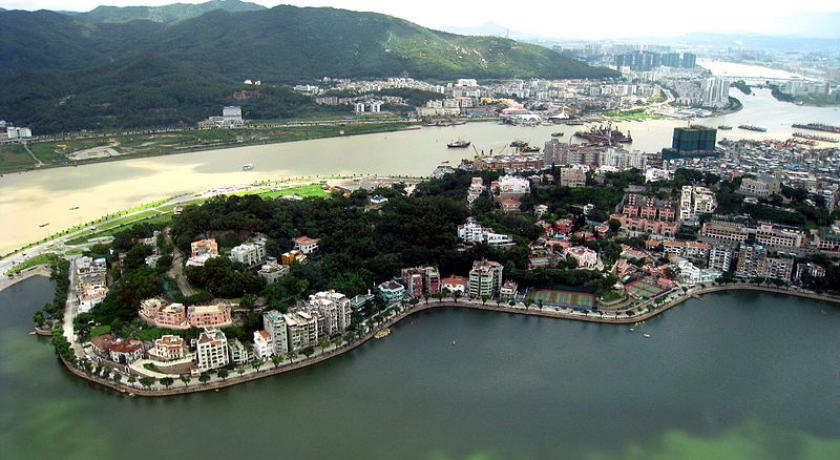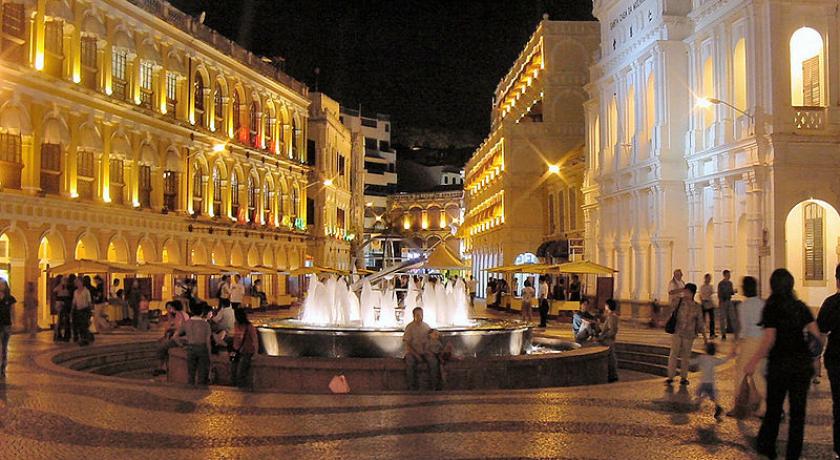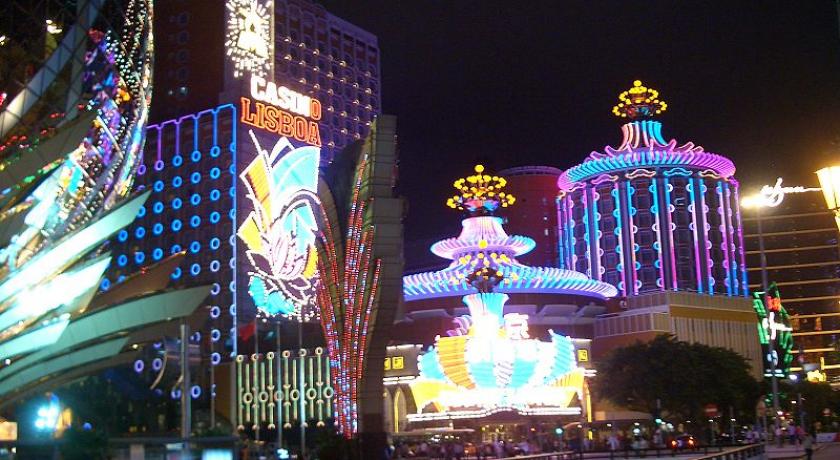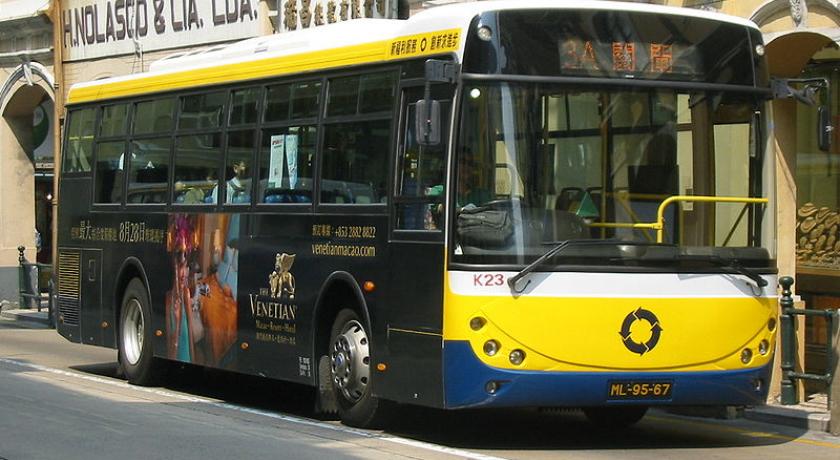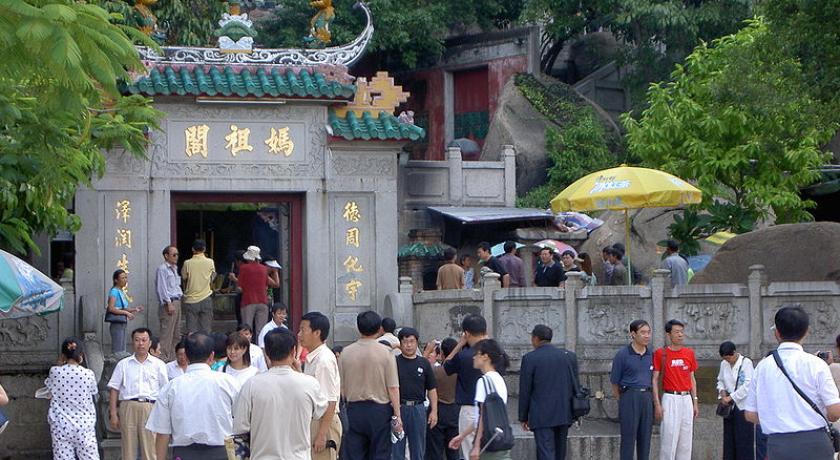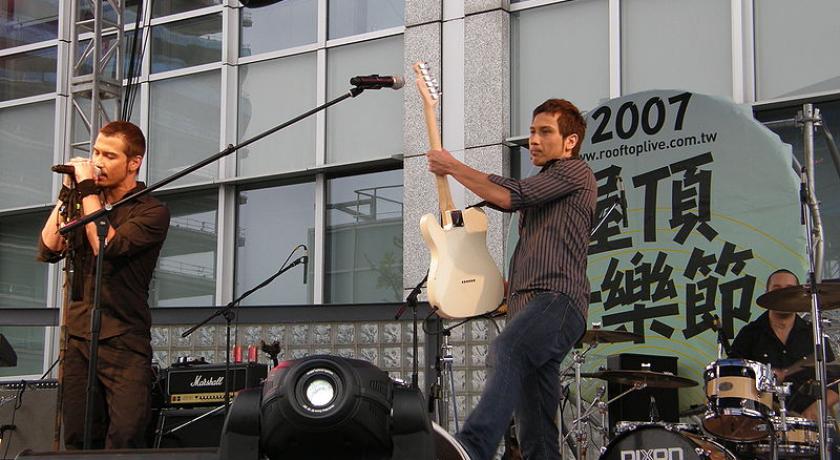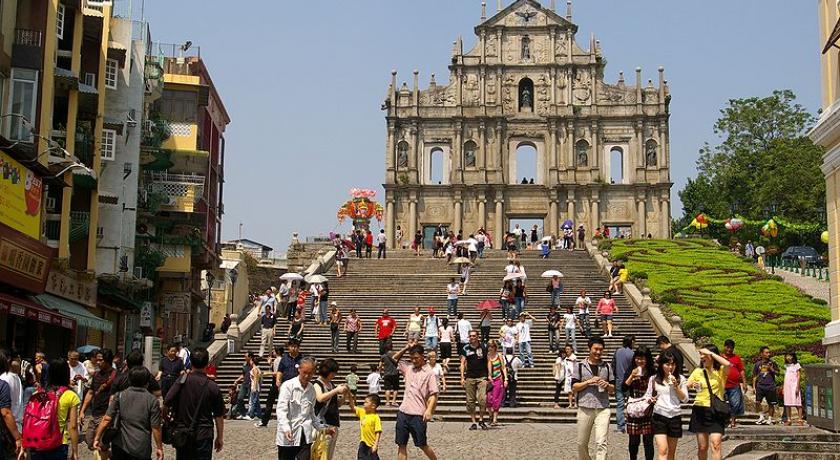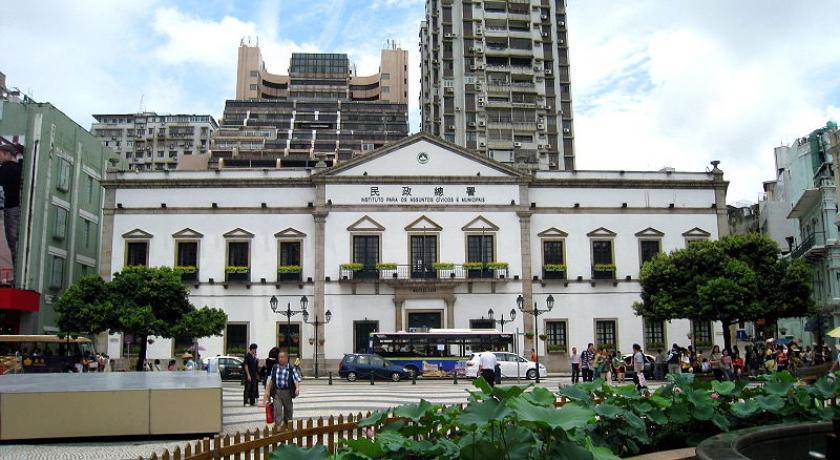Description
Macau, officially the Macao Special Administrative Region of the People's Republic of China, is an autonomous territory on the western side of the Pearl River Delta in East Asia. Macau is bordered by the city of Zhuhai in China to the North and the Pearl River Estuary to the East and South. Hong Kong lies about 64 kilometres (40 mi) to its East across the Delta. With an estimated population of around 647,700 living in an area of 30.5 km² (11.8 sq mi), it is the most densely populated region in the world.
Macau was administered by the Portuguese Empire and its inheritor states from the mid-16th century until late 1999, when it was the last remaining European colony in Asia. Portuguese traders first settled in Macau in the 1550s. In 1557, Macau was rented to Portugal from Ming China as a trading port. The Portuguese Empire administered the city under Chinese authority and sovereignty until 1887, when Macau, through a mutual agreement between the two countries, became a colony. Sovereignty over Macau was transferred to China on 20 December 1999. The Joint Declaration on the Question of Macau and Macau Basic Law stipulate that Macau operate with a high degree of autonomy until at least 2049, fifty years after the transfer.
Under the policy of "one country, two systems", the State Council of the People's Republic of China is responsible for military defense and foreign affairs while Macau maintains its own legal system, public security force, monetary system, customs policy, and immigration policy. Macau participates in international organizations and events that do not require members to possess national sovereignty.
Macau is among the world's richest regions, and as of 2015 its GDP per capita by purchasing power parity is higher than that of any country in the world, according to the World Bank. It became the world's largest gambling centre in 2006, with the economy heavily dependent on gambling and tourism, as well as manufacturing. According to The World Factbook, Macau has the fourth highest life expectancy in the world. Moreover, it is one of the regions in Asia with a "very high Human Development Index", ranking 18th in the world as of 2014.
History
The history of Macau is traced back to the Qin dynasty (221–206 BC), when the region now called Macau came under the jurisdiction of Panyu County, Nanhai Prefecture (modern Guangdong). The first recorded Chinese inhabitants of the area were people seeking refuge in Macau from invading Mongols during the Southern Song. Under the Ming dynasty (1368–1644), fishermen migrated to Macau from Guangdong and Fujian. The Macau native people were Tanka boat people.
Macau did not develop as a major settlement until the Portuguese arrived in the 16th century. In 1513, Jorge Álvares became the first Portuguese to land in China. In 1535, Portuguese traders obtained the rights to anchor ships in Macau's harbours and to carry out trading activities, though not the right to stay onshore. Around 1552–1553, they obtained temporary permission to erect storage sheds onshore, in order to dry out goods drenched by sea water; they soon built rudimentary stone houses around the area now called Nam Van.
Portuguese Macau
In 1557, the Portuguese established a permanent settlement in Macau, paying an annual rent of 500 taels(18.9 kilograms / 41.6 pounds) of silver. The Portuguese continued to pay an annual tribute up to 1863 in order to stay in Macau.
By 1564, Portugal commanded western trade with India, Japan, and China. But their pride was shocked by the indifference with which the Chinese treated them. The senate of Macau once complained to the viceroy of Goaof the contempt with which the Chinese authorities treated them, confessing however that "it was owing more to the Portuguese themselves than to the Chinese". In 1631 the Chinese restricted Portuguese commerce in China to the port of Macau.
During the 17th century, some 5,000 slaves lived in Macau, in addition to 2,000 Portuguese and 20,000 Chinese.
As more Portuguese settled in Macau to engage in trade, they made demands for self-administration; but this was not achieved until the 1840s. In 1576, Pope Gregory XIII established the Roman Catholic Diocese of Macau. In 1583, the Portuguese in Macau were permitted to form a Senate to handle various issues concerning their social and economic affairs under strict supervision of the Chinese authority, but there was no transfer of sovereignty.
Macau prospered as a port but it was the target of repeated failed attempts by the Dutch to conquer it in the 17th century. On 24 June 1622, the Dutch attacked Macau in the Battle of Macau, in the hope of turning it into a Dutch possession. The Portuguese repulsed their attack and the Dutch never tried to conquer Macau again. The majority of the defenders were African slaves, with only a few Portuguese soldiers and priests. Captain Kornelis Reyerszoon was commander of the 800-strong Dutch invasion force.
The Dutch Governor Jan Pz. Coen said after the defeat that "The slaves of the Portuguese at Macau served them so well and faithfully, that it was they who defeated and drove away our people there last year", and "Our people saw very few Portuguese" during the battle.
Following the First Opium War (1839–42), Portugal occupied Taipa and Coloane in 1851 and 1864 respectively. On 1 December 1887, the Qing and Portuguese governments signed the Sino-Portuguese Treaty of Peking, under which China ceded the right of "perpetual occupation and government of Macau by Portugal" in compliance with the statements of the Protocol of Lisbon. In return, Macau Government would cooperate with Hong Kong's smuggle of Indian opium and China would be able to increase profits through customs taxes. Portugal was also obliged "never to alienate Macau without previous agreement with China", therefore ensuring that negotiation between Portugal and France (regarding a possible exchange of Macau and Portuguese Guinea with the French Congo) or with other countries would not go forward – so that the British commercial interests would be secured; Macau officially became a territory under Portuguese administration.
In 1928, after the Qing dynasty had been overthrown following the Xinhai Revolution, the Kuomintang (KMT) government officially notified Portugal that it was abrogating the Treaty of Amity and Commerce; the two powers signed a new Sino-Portuguese Friendship and Trade Treaty in place of the abrogated treaty. Making only a few provisions concerning tariff principles and matters relating to business affairs, the new treaty did not alter the sovereignty of Macau and Portuguese government of Macau remained unchanged.
During World War II, unlike Portuguese Timor, which was occupied by the Japanese in 1942 along with Dutch Timor, the Japanese respected Portuguese neutrality in Macau, but only up to a point. As such, Macau enjoyed a brief period of economic prosperity as the only neutral port in South China after the Japanese had occupied Guangzhou and Hong Kong. In August 1943, Japanese troops seized the British steamer Sian in Macau and killed about 20 guards. The next month they demanded the installation of Japanese "advisors" under the alternative of military occupation. The result was that a virtual Japanese protectorate was created over Macau.
When it was discovered that neutral Macau was planning to sell aviation fuel to Japan, aircraft from the USS Enterprise bombed and strafed the hangar of the Naval Aviation Centre on 16 January 1945 to destroy the fuel. American air raids on targets in Macau were also made on 25 February and 11 June 1945. Following Portuguese government protest, in 1950 the United States paid US$20,255,952 to the government of Portugal.
Between the end of the Pacific War and the establishment of the People's Republic of China, Macau served as a safe haven for refugees of the Chinese Civil War.
After the establishment of the People's Republic of China in 1949, the Beijing government declared the Sino-Portuguese Treaty invalid as an "unequal treaty" imposed by foreigners on China. However, Beijing was not ready to settle the treaty question, leaving the maintenance of "the status quo" until a more appropriate time.
Influenced by the Cultural Revolution in mainland China and by general dissatisfaction with Portuguese government, riots broke out in Macau in 1966. In the most serious, the so-called 12-3 incident, 6 people were killed and more than 200 people were injured. On 28 January 1967, the Portuguese government issued a formal apology by means of an "admission of guilt".
Shortly after Portugal's 1974 Carnation Revolution, which overthrew the Estado Novo dictatorship, the new government determined it would relinquish all its overseas possessions. In 1976, Lisbon redefined Macau as a "Chinese territory under Portuguese administration" and granted it a large measure of administrative, financial, and economic autonomy. Three years later, Portugal and China agreed to regard Macau as "a Chinese territory under (temporary) Portuguese administration". The Chinese and Portuguese governments commenced negotiations on the question of Macau in June 1986. The two signed the Sino-Portuguese Joint Declaration the next year, making Macau a special administrative regions of China.
Geography
Macau is situated 60 kilometres (37 mi) southwest of Hong Kong and 145 kilometres (90 mi) from Guangzhou of Mainland China. It also has 41 kilometres (25 mi) of coastline, yet only 310 metres (1,000 ft) of land border with Guangdong of Mainland China. It consists of the Macau Peninsula itself and the islands of Taipa and Coloane, which are now connected by landfill forming Cotai. The peninsula is formed by the Zhu Jiang (Pearl River) estuary on the east and the Xi Jiang (West River) on the west. It borders the Zhuhai Special Economic Zone in mainland China. The main border crossing between Macau and China is known as the Portas do Cerco (Barrier Gate) on the Macau side, and the Gongbei Port of Entry on the Zhuhai side.
Macau Peninsula was originally an island, but a connecting sandbar gradually turned into a narrow isthmus, thus changing Macau into a peninsula. Land reclamation in the 17th century transformed Macau into a peninsula with generally flat terrain, though numerous steep hills still mark the original land mass. Alto de Coloane is the highest point in Macau, with an altitude of 170.6 metres (559.7 ft). With a dense urban environment, Macau has no arable land, pastures, forest, or woodland.
Climate
Macau has a humid subtropical climate (Köppen Cwa), with average relative humidity between 75% and 90%. Similar to much of South China, seasonal climate is greatly influenced by the monsoons, and differences in temperature and humidity between summer and winter are noticeable, though not as great as in mainland China. The average annual temperature of Macau is 22.7 °C (72.9 °F). July is the warmest month, the average temperature being 28.9 °C (84.0 °F). The coolest month is January, with a mean temperature of 14.5 °C (58.1 °F).
Located on China's southern coast, Macau has ample rainfall, with average annual precipitation being 2,120 millimetres (83 in). However, winter is mostly dry due to the influence of the vast Siberian High affecting much of East Asia. Autumn in Macau, from October to November, is sunny and still pleasantly warm with lower humidity. Winter (December to early March) is generally mild with temperatures above 13 °C (55 °F) most of the time, although it can drop below 8 °C (46 °F) at times. Humidity starts to increase from late March. Summer is very warm to hot (often rising above 30 °C (86 °F) during the day). The hot weather is often followed by heavy rain, thunderstorms and occasional typhoons.
Monetary system
In Macau, the unit of currency is the pataca, which is currently pegged to the Hong Kong dollar at a rate of HK$1 = MOP1.03. The name pataca is a Portuguese word which was applied to the Mexican dollars that were the main circulating coin in the wider region in the second half of the 19th century. In 1894, the pataca was introduced in both Macau and Portuguese Timor as a unit of account for the Mexican dollar and the other silver dollar coins in circulation. However, the pataca was not the official currency when it was first enacted. In 1901, it was decided to grant the Banco Nacional Ultramarino the exclusive rights to issue banknotes denominated in patacas, and in the year 1906, all foreign coins were outlawed. However, the Chinese were suspicious of these paper patacas, being so accustomed to using silver for barter, and as such, the paper patacas circulated at a discount in relation to the silver dollar coins. In 1935, when China and Hong Kong abandoned the silver standard, the Hong Kong dollar was pegged to sterling at the fixed rate of 1 shilling and 3 pence, whereas the pataca was pegged to the Portuguese escudo at a sterling equivalent rate of only 1 shilling. From 1945 to 1951, fractional coins of the pataca were minted for issue in Portuguese Timor; and, in 1952, similar issues were minted for Macau including an actual pataca coin for the first time.
Religion
Most Chinese in Macau are profoundly influenced by their own tradition and culture, of which most take part in Chinese folk religion, in which Taoism and Confucianism are comprehended. According to a survey conducted between 2005, 2007 and 2009, 30% of the population follows folk faiths, 10% are adherents of Buddhism or Taoism, 5% are Christians, and the remaining part do not declare religious affiliation.
Culture
The mixing of the Chinese and Portuguese cultures and religious traditions for more than four centuries has left Macau with an inimitable collection of holidays, festivals and events. The biggest event of the year is the Macau Grand Prix in November, when the main streets in Macau Peninsula are converted to a racetrack bearing similarities with the Monaco Grand Prix. Other annual events include Macau Arts festival in March, the International Fireworks Display Contest in September, the International Music festival in October and/or November, and the Macau International Marathon in December.
The Lunar Chinese New Year is the most important traditional festival and celebration normally takes place in late January or early February. The Pou Tai Un Temple in Taipa is the place for the Feast of Tou Tei, the Earth god, in February. The Procession of the Passion of Our Lord is a well-known Roman Catholic rite and journey, which travels from Saint Austin's Church to the Cathedral, also taking place in February.
A-Ma Temple, which honours the Goddess Matsu, is in full swing in April with many worshippers celebrating the A-Ma festival. In May it is common to see dancing dragons at the Feast of the Drunken Dragon and twinkling-clean Buddhas at the Feast of the Bathing of Lord Buddha. In Coloane Village, the Taoist god Tam Kong is also honoured on the same day. Dragon Boat festival is brought into play on Nam Van Lake in June and Hungry Ghosts' festival, in late August and/or early September every year. All events and festivities of the year end with Winter Solstice in December.
Macau preserves many historical properties in the urban area. The Historic Centre of Macau, which includes some twenty-five historic locations, was officially listed as a World Heritage Site UNESCO on 15 July 2005 during the 29th session of the World Heritage Committee, held in Durban, South Africa.
Cuisine
Local cooking in Macau consists of a blend of Cantonese and Portuguese cuisines. Many unique dishes resulted from the spice blends that the wives of Portuguese sailors used in an attempt to replicate European dishes. Its ingredients and seasonings include those from Europe, South America, Africa, India, and Southeast Asia, as well as local Chinese ingredients. Typically, Macanese food is seasoned with various spices and flavours including turmeric, coconut milk, cinnamon and bacalhau, giving special aromas and tastes. Famous dishes include minchi, capella, galinha à Portuguesa, galinha à Africana (African chicken), bacalhau, Macanese chili shrimps and stir-fry curry crab. Pork chop bun, ginger milk and Portuguese-style egg tart are also very popular in Macau.
Address
Macao
Macao
Lat: 22.198745728 - Lng: 113.543876648


